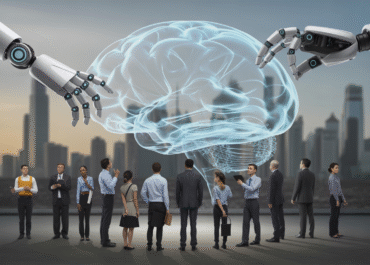The Future is Now: MedTech AI, Hardware, and Clinical Application Programs Revolutionizing Healthcare
The convergence of Artificial Intelligence (AI) with medical technology (MedTech) is ushering in an unprecedented era of healthcare innovation. From sophisticated diagnostic tools to personalized treatment plans and streamlined clinical operations, AI is no longer a futuristic concept but a vital component integrated across various facets of medicine. This article delves into the profound impact of MedTech AI, the essential role of advanced hardware, and the transformative potential of clinical application programs.
AI: The Brains Behind Modern Healthcare
AI’s analytical prowess allows it to process vast amounts of complex medical data at speeds and accuracies unattainable by humans alone. This capability is revolutionizing several key areas:
- Enhanced Diagnostics and Early Detection: AI algorithms excel at interpreting medical images like X-rays, MRIs, and CT scans, identifying subtle anomalies that might escape the human eye. This leads to earlier and more accurate diagnoses for conditions ranging from cancer to neurological disorders. Furthermore, AI can analyze patient data patterns to predict disease onset, enabling proactive intervention.
- Personalized Treatment and Drug Discovery: By analyzing individual patient data—including genomics, medical history, and lifestyle—AI can tailor treatment protocols, predicting optimal drug dosages and identifying therapies most likely to succeed. In drug development, AI accelerates the discovery process by rapidly sifting through molecular compounds, predicting their efficacy and potential side effects, thus significantly reducing the time and cost associated with bringing new medications to market.
- Clinical Decision Support: AI-powered systems can act as intelligent assistants, providing clinicians with real-time, evidence-based recommendations based on the latest research and vast patient data, enhancing diagnostic accuracy and treatment efficacy.
Hardware: The Foundation for AI’s Impact
While AI provides the intelligence, cutting-edge hardware forms the essential physical interface, collecting the data that fuels AI’s learning and enabling its applications:
- Advanced Imaging Devices: High-resolution MRI, CT, and ultrasound machines provide the detailed visual data critical for AI-driven image analysis.
- Wearable Technology and Sensors: Smartwatches, continuous glucose monitors, and other biometric sensors gather real-time health data, allowing for continuous monitoring, early detection of anomalies, and proactive health management.
- Robotic Surgical Systems: AI-guided robotic arms enable surgeons to perform minimally invasive procedures with unparalleled precision, reducing recovery times and improving patient outcomes.
- Next-Generation Lab Equipment: Automated lab systems and genomic sequencers generate the massive datasets required for AI-driven research and personalized medicine.
Clinical Application Programs: Integrating AI into Practice
The true power of MedTech AI is unleashed when it’s seamlessly integrated into daily clinical workflows through specialized application programs. These programs bridge the gap between AI insights and practical healthcare delivery:
- Electronic Health Records (EHR) Integration: AI-enhanced EHR systems can intelligently organize patient information, flag potential drug interactions, and suggest preventive care measures.
- Predictive Analytics for Operations: Hospitals utilize AI programs for optimizing resource allocation, predicting patient flow, and managing bed availability, leading to greater operational efficiency and reduced wait times.
- Remote Patient Monitoring Platforms: These programs leverage data from wearables and home devices, allowing healthcare providers to monitor patients remotely, manage chronic conditions, and intervene promptly when necessary.
- Diagnostic Support Systems: Beyond image analysis, these programs assist clinicians in interpreting complex lab results, differential diagnoses, and treatment planning, often drawing on vast medical literature and clinical guidelines.
The Transformative Outlook
The synergy between MedTech AI, robust hardware, and intuitive clinical application programs is reshaping healthcare, promising a future of more accurate diagnoses, highly personalized treatments, and significantly improved patient outcomes. While challenges such as data privacy, ethical considerations, and regulatory frameworks remain, the trajectory is clear: AI is not merely augmenting human capabilities but fundamentally transforming the landscape of medicine. This powerful combination is paving the way for a healthcare system that is more proactive, precise, and accessible for everyone.


